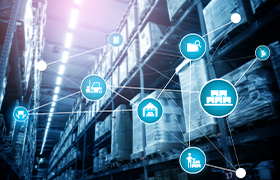
Bottle Bills— A Boon for Beverage Bottle Recycling!

Abstract:
The U.S. “bottle bill” has been in existence for over 20 years, with varying collection and recycling rates for products made from plastic, glass, and aluminum. Recently, awareness about the use of sustainable products has been on the rise among consumers. This trend is being ably supported by brand owners and suppliers that provide sustainable solutions. Recyclability of plastic bottles and plastic waste has been a major issue, and such bills now provide the opportunity for consumers and manufacturers to work together toward environmentally friendly packaging.
Effective Campaigns:
Nearly 72 percent of aluminum beverage cans were recycled in 2017 (32 billion cans) in Europe, which was more than the EU Circular Economy proposal of 65 percent. Certain countries such as Germany, Finland, Belgium, and Norway recycle almost 100 percent of aluminum beverage cans consumed within their territory. This success is made possible, mainly thanks to effective campaigns such as “Every Can Counts” and “Beat the Bottle,” which convinced consumers to recycle cans, whether at home, at the office, or even at festivals.
Such campaigns have helped curbside collection improve by nearly 10–15 percent in various countries within Europe. The “Your Bottle Means Jobs” campaign in North Carolina increased sales of processed plastic bottles by two percent. The campaign called for households in North Carolina to increase their recycling of plastic bottles by just two bottles a week. This would not only yield 30,000 tons of additional bottles but would also create 300 new jobs.
Increasing Incentives:
In certain U.S. states, to produce effective and more efficient collection rates, incentives to recycle bottles have been increased. In April 2017, the state of Oregon increased its redemption rate from five cents to 10 cents; though a marginal increase, the Oregon Beverage Recycling Cooperatives estimates that nearly 80–90 percent of their beverage containers were recycled in 2018. The deposit is paid upfront by consumers when purchasing beverages and reimbursed when the containers are returned. In certain cases, there have been issues of out-of-state fraud, whereby consumers purchase beverages outside the state without a deposit and bring in the cans in Oregon to redeem the money.
Related Insights:
View All
Get more stories like this
Subscirbe for more news,updates and insights from Beroe






